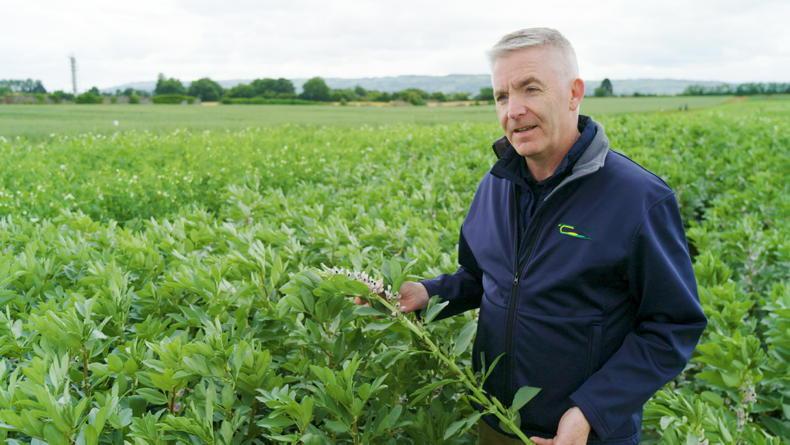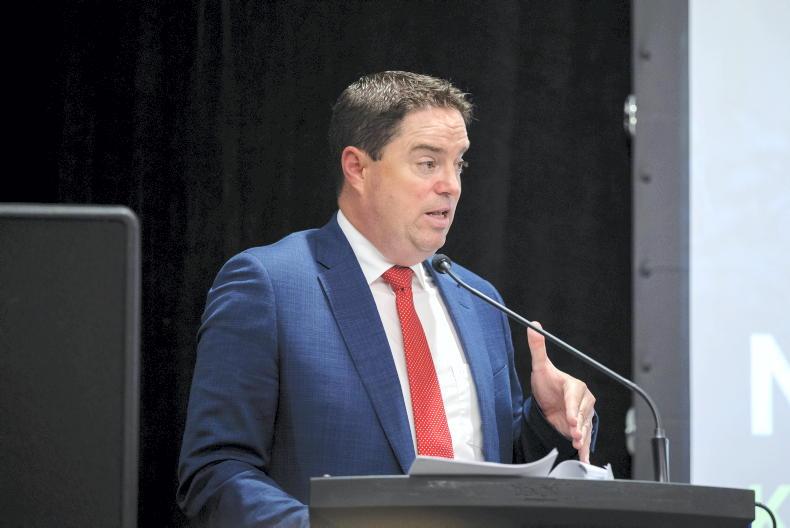The US has highlighted the key role it sees for biotechnology and gene editing in combating climate change, in an address to the Agricultural Science Association (ASA) conference on Friday morning.
US Secretary of Agriculture Tom Vilsack said new tools such as genome editing offered ways to improve agricultural resilience, cut food waste and reduce carbon inputs.
Vilsack, making the keynote address to the FBD-sponsored ASA conference, said the Biden-Harris administration sees agriculture as central to the country’s work to combat climate change.
'Threats and opportunities'
“The climate crisis brings forth threats and opportunities to the agricultural sector and agriculture is an essential partner in the US goal to reach net zero emissions by 2050 with significant reductions, based on President Biden's commitment at the April leaders summit on climate,” Vilsack told the virtual conference in his keynote address.
Vilsack said that under the Biden and Harris administration, the US Department of Agriculture is engaged in a whole-of-government effort to combat the climate crisis and conserve and protect its lands, biodiversity and natural resources, including soil, air and water.
“The president and the White House believe that food, agriculture and forestry will play a major role in addressing climate change,” he said.
The US agriculture secretary highlighted US domestic agri strategies, such as no-till farming and rotational grazing land conservation and carbon storage and sequestration, among others.
He also pointed to a new joint US and United Arab Emirates project: the agricultural innovation mission for climate.
Its goal is to “increase and accelerate global innovation and research and development in agriculture and food systems in support of climate action” he said, adding it would enable science-based and data driven decision and policy making.
Biotechnology use
Vilsack highlighted the role that biotechnology will play in the US strategy to combat climate change and increase sustainability.
“Biotechnology can be used to develop biofuel crops that require fewer fossil fuel inputs to grow.
"For example, new oilseed crop varieties are being developed that have lighter oil content for joint use as cover crops and biofuel.
Plants developed with biotechnology can adapt to changing environmental conditions
“Plants developed with biotechnology can adapt to changing environmental conditions, such as drought, salinity, heat and other stressors, as well as lowering the need for inputs that contribute to carbon emissions,” he pointed out.
“And the adoption of certain plants, animals and microbes, develop a biotechnology can have following effects that further reduce environmental impacts. For example, non-browning, or reduce spoiling plant varieties, increase the shelf life of fresh produce and reduce food waste.
“New tools, such as genome editing, also had clear benefits - they drive innovation and can increase global agricultural resiliency.
"Many countries, including United States, are revisiting their agricultural biotechnology regulations in response to scientific developments in genome editing.
“Gene editing shows exciting potential to offer new tools to combat animal disease challenges which remain critical as livestock production systems adapt to a changing climate,” he said.
Strategies
He said the US commends the high-level objectives of the EU’s Farm to Fork and Biodiversity strategies and shares the EU's commitment to sustainability and addressing climate change.
However, he added: “Recognising that while we share the same goal, there may well be different ways to get to that goal.”
“With the 21st century science innovation and tools we have available, we can make the agricultural sector greener, more resilient and more competitive,” he concluded.
EU-US talks
Vilsack added that the USDA and European Commission’s Directorate General for Agriculture have discussed the possibility of formalising high-level engagements to tackle the bilateral and global challenges facing EU and US farmers.
He added that he had met with Ireland’s Minister for Agriculture Charlie McConalogue in the spring and the two countries would continue to work together to maintain a strong partnership.
Minister McConalogue earlier told the ASA conference that every sector of Ireland’s economy, including agriculture, will have to make a real contribution if we are to reach our climate objectives.
Narrative
However, he added that the “the narrative that agriculture should be singled out for having a greater hill to climb is unfair and wrong” and that "the creation of a narrative that alienates our farmers is unhelpful”.
The Minister said he was working constructively with his cabinet colleagues to ensure that the implementation of the climate action plan “will see the unique status of Irish agriculture taken into account when forming carbon budgets”.
The Climate Change Advisory Council is expected to deliver its view on what Ireland’s national target for carbon reduction should be to Government by the end of this month.









SHARING OPTIONS